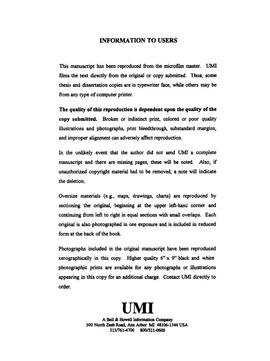| dc.contributor.advisor | Stoltenberg, Cal, | en_US |
| dc.contributor.author | Derrickson, Dana Lynn. | en_US |
| dc.date.accessioned | 2013-08-16T12:30:42Z | |
| dc.date.available | 2013-08-16T12:30:42Z | |
| dc.date.issued | 1999 | en_US |
| dc.identifier.uri | https://hdl.handle.net/11244/5854 | |
| dc.description.abstract | This study measured the effect of treatment alliance on Readiness to Change, utilizing the Working Alliance Inventory (WAI) (Horvath & Greenberg, 1989) and the University of Rhode Island Change Assessment Inventory (URICA) (McConnaughy, Prochaska & Velicer, 1983). It was hypothesized that a stronger treatment alliance will predict more readiness to change. In addition, the length of treatment and conviction status (child molester versus rapist) were examined as predictors of readiness to change. The participants were recruited from a pool of incarcerated sex offenders in a residential treatment program. It was found that working alliance was a significant predictor of readiness to change, but conviction status and length of treatment did not predict readiness to change or strength of working alliance. Implications of this study are discussed. | en_US |
| dc.format.extent | viii, 82 leaves ; | en_US |
| dc.subject | Psychology, Clinical. | en_US |
| dc.subject | Sociology, Criminology and Penology. | en_US |
| dc.subject | Sex offenders Rehabilitation Oklahoma. | en_US |
| dc.subject | Child molesters Rehabilitation Oklahoma. | en_US |
| dc.subject | Psychology, Behavioral. | en_US |
| dc.title | Working alliance and readiness to change in incarcerated sex offenders. | en_US |
| dc.type | Thesis | en_US |
| dc.thesis.degree | Ph.D. | en_US |
| dc.thesis.degreeDiscipline | Department of Educational Psychology | en_US |
| dc.note | Source: Dissertation Abstracts International, Volume: 60-08, Section: B, page: 4215. | en_US |
| dc.note | Adviser: Cal Stoltenberg. | en_US |
| ou.identifier | (UMI)AAI9940296 | en_US |
| ou.group | Jeannine Rainbolt College of Education::Department of Educational Psychology | |
